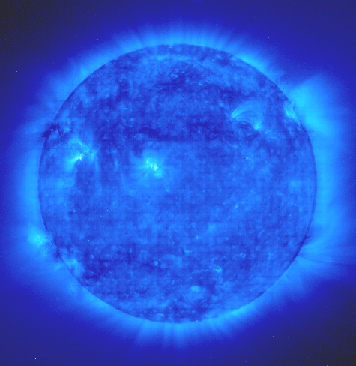
Zach, the main character in Signals and Noise, finds himself fascinated by cosmology because it is the only thing that takes him outside of everyday reality into a realm that is alien and mysterious. Biology is reconcilable to our personal lives, law is a linguistic game, computer science is second-hand to Zach, the complex mathematics of the titular “Signal” is discoverable in intent if not details, but cosmology asks questions that cross into a metaphysical realm. Unlike religious feeling, however, there is no requirement of faith and no direct application to human interactions. There is no ethics of cosmology and little human history.
Should we have expected this? Should we have expected a universe that has black holes or neutrinos? We currently believe that the universe is expanding and may expand forever into a cold, diffuse conclusion. Dark matter and dark energy have to be invoked to explain this and the clumping we observe in the universe. But, interestingly, tiny little particles called neutrinos may be a large portion of this dark matter. Neutrinos have tiny mass and behave somewhat like photons passing through translucent materials when they pass through matter, but they change forms during transit according to an interesting interaction with matter known as “flavor oscillations.”
While the Catholic Church uses cosmology to justify ex nihilo creation, there is almost nothing in modern cosmology that justifies or supports religious sentiments, whether Western or Eastern. Indeed, this is just plain weird shit that devolves out of mathematical results and then is confirmed or denied by experimental methods (with a bias towards the confirmed results).
Zach is more than justified. He is right in his fascination and his skepticism about merely human ideologies.… Read the rest